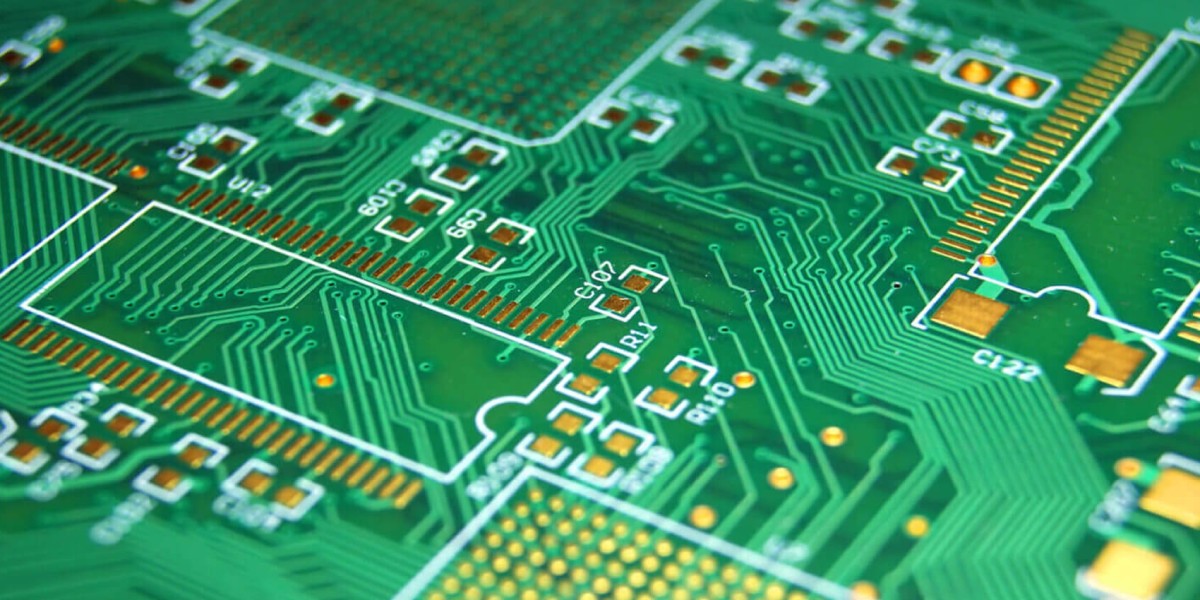When designing an electronic product, selecting the right PCB (Printed Circuit Board) is crucial to ensuring its functionality, performance, and longevity. While traditional rigid PCBs have been the go-to solution for many years, flexible PCBs are gaining traction in a wide variety of industries. These innovative boards offer several unique advantages, making them an appealing choice for many modern applications.
Whether you’re developing wearable technology, automotive components, or high-performance electronics, working with a specialized flexible PCB manufacturer could be the key to taking your project to the next level. In this blog post, we’ll explore why you should choose a flexible PCB manufacturer for your next project and the benefits this decision can offer.
1. Space-Saving Design Flexibility
One of the biggest advantages of flexible PCBs is their ability to save space. Unlike rigid PCBs, which require components to be placed on a flat, rigid surface, flexible PCBs can bend, twist, and fit into compact, non-traditional shapes. This makes them ideal for applications where space is at a premium, such as in wearable devices, smartphones, medical devices, and aerospace equipment.
Flexible PCBs allow for more compact and efficient designs, reducing the need for additional components like connectors or wires. As a result, manufacturers can create lighter, smaller, and more versatile devices that would otherwise be difficult or impossible to achieve with rigid PCBs.
2. Improved Durability and Flexibility
Flexible PCBs are engineered to withstand the physical demands of devices that experience frequent movement or vibration. Unlike traditional PCBs that are prone to cracking or breaking under stress, flexible PCBs can endure bending, flexing, and torsion without compromising their performance. This makes them ideal for applications in industries like automotive, aerospace, robotics, and wearable technology, where durability and flexibility are essential.
By partnering with a flexible PCB manufacturer, you can ensure that your product can endure harsh environments and remain reliable for a longer lifespan, even when subjected to constant movement or changes in shape.
3. Enhanced Heat Dissipation
As electronics become more powerful and compact, managing heat becomes increasingly important. Flexible PCBs often provide better heat dissipation compared to rigid PCBs. The materials used in flexible PCB construction—such as polyimide—have excellent thermal properties, enabling the board to handle heat more efficiently. This is particularly valuable in high-performance applications like LED lighting, automotive systems, and power electronics, where heat can accumulate rapidly and cause performance issues.
Working with a flexible PCB manufacturer means you can integrate advanced thermal management features into your design, ensuring that your device operates within optimal temperature ranges and avoids overheating.
4. Reduced Assembly Complexity and Cost
Flexible PCBs can streamline the assembly process, reducing the need for connectors, wires, and other traditional components. Since flexible PCBs can be bent or folded to fit complex shapes, they often eliminate the need for multiple individual connections, which can lead to fewer assembly steps, reduced labor costs, and faster production times.
This reduction in complexity not only results in cost savings but also improves the overall reliability of your product. Fewer components mean fewer potential points of failure, which enhances the durability and longevity of the finished device.
5. Better Performance in Harsh Environments
Flexible PCBs are particularly well-suited for use in harsh environments, where traditional PCBs might struggle. Flexible materials are resistant to shock, vibration, and temperature fluctuations, making them perfect for applications in rugged industries like automotive, defense, and industrial machinery. Whether you're building a high-tech automotive component or a military-grade device, flexible PCBs offer the robust performance required in demanding settings.
By choosing a flexible PCB manufacturer, you ensure that your product is built to perform reliably in extreme conditions, from high temperatures to mechanical stress.
6. Design Freedom and Customization
Flexible PCBs offer far more design freedom compared to rigid boards. They can be designed to wrap around corners, fit into unique geometries, or even be incorporated into a flexible assembly that adapts to the shape of the device. This ability to customize the design is particularly useful in products that require unconventional shapes or intricate layouts, such as wearables, medical implants, or curved displays.
By collaborating with a flexible PCB manufacturer, you gain access to advanced design tools and expertise that allow for the creation of highly specialized, customized PCBs that meet the exact requirements of your project.
7. Support for High-Density Interconnects
Flexible PCBs support high-density interconnects (HDI), which allow for more connections within a smaller footprint. This is particularly important in products that require high-speed data transmission, such as smartphones, tablets, and advanced medical devices. The use of HDI technology enables manufacturers to place more components and complex circuits on a single board, without sacrificing performance.
Flexible PCB manufacturers are equipped with the latest technologies to produce high-density boards that meet the needs of today’s high-performance applications. Whether you’re working on a cutting-edge consumer device or a specialized industrial solution, flexible PCBs can provide the high-density interconnects your project needs.
8. Long-Term Reliability
One of the key advantages of flexible PCBs is their long-term reliability. Because they can flex and bend without damage, flexible PCBs are less likely to suffer from fatigue or failure over time compared to rigid PCBs. This makes them an excellent choice for mission-critical applications, such as aerospace, automotive, and medical devices, where product reliability and longevity are paramount.
Choosing a flexible PCB manufacturer ensures that your device will continue to function as expected for years to come, even when exposed to constant movement or harsh conditions.
9. Sustainability and Environmental Benefits
As sustainability becomes an increasingly important consideration in manufacturing, flexible PCBs offer several environmental benefits. Many flexible PCBs are made from materials that are more environmentally friendly than their rigid counterparts, and their compact design reduces the amount of material needed to produce the final product. Additionally, the use of flexible PCBs can often reduce the need for additional components, such as connectors and cables, further decreasing the overall environmental footprint of your device.
Partnering with a flexible PCB manufacturer who prioritizes sustainability can help you reduce your project’s environmental impact while still delivering high-performance results.
Conclusion: Unlock the Potential of Flexible PCBs for Your Next Project
Flexible PCBs offer a range of benefits that traditional rigid boards simply cannot match. From their ability to save space and improve durability to their potential for better heat dissipation and reduced assembly complexity, flexible PCBs are an invaluable asset in today’s high-tech world. Whether you're designing wearable devices, advanced automotive components, or cutting-edge consumer electronics, choosing a flexible PCB manufacturer can give you the flexibility, reliability, and performance your project demands.
By working with an experienced and specialized flexible PCB manufacturer, you can unlock new design possibilities and ensure that your project is a success from start to finish. So, if you're ready to take your next project to the next level, consider the many advantages of flexible PCBs and how they can help bring your vision to life.








